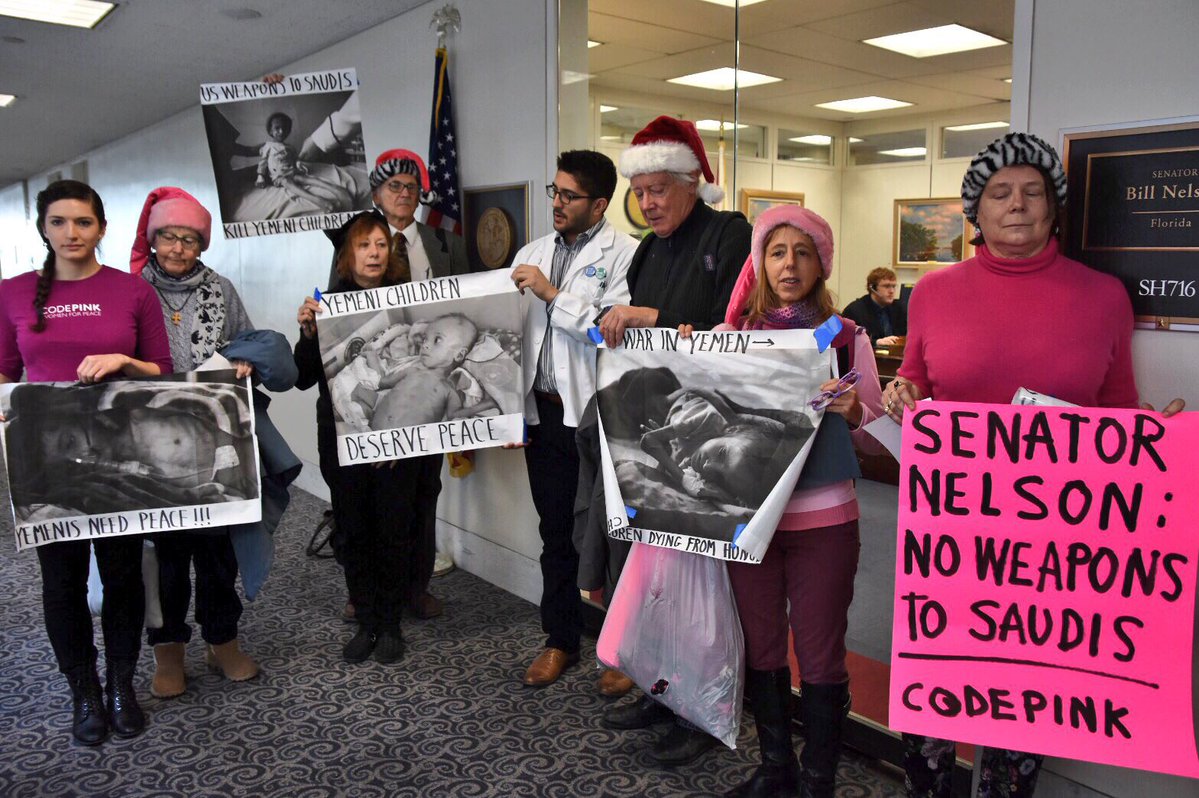Trump’s second veto?
April 9, 2019 | Expert Insights

The House voted Thursday to end U.S. participation in Yemen’s civil war, denouncing the Saudi-led bombing campaign there as worsening an already dire humanitarian crisis and sending the measure to President Trump for his expected veto.
Background
The Yemeni Civil War is an ongoing conflict that began in 2015 between two factions: the internationally recognized Yemeni government, led by Abdrabbuh Mansur Hadi, and the Houthi armed movement, along with their supporters and allies. Both claim to constitute the official government of Yemen.
On 21 March 2015, after taking over Sana'a and the Yemeni government, the Houthi-led Supreme Revolutionary Committee declared a general mobilization to overthrow Hadi and further their control by driving into southern provinces
Military intervention was launched by Saudi Arabia in 2015, to influence the Civil War in Yemen. A two-year Saudi-led campaign has damaged infrastructure and caused a shortage of medicine in one of the poorest Arab countries. Reports have also emerged that there are players within Yemen who actively sponsor terrorism by funding activities conducted by ISIS.
The United States provided intelligence and logistical support for the campaign.
The Saudi-led coalition has been carrying out air strikes against the Houthi rebels for more than 2 years now. Since then, the country has been plunged into a civil war in which the exiled government backed by Saudi Arabia is trying to defeat the Houthi group aligned with Iran.
According to the UN and other sources, from March 2015 to December 2017, 8,670–13,600 people were killed in Yemen, including more than 5,200 civilians, as well as estimates of more than 50,000 dead as a result of an ongoing famine due to the war.
In March 2019, the US Congress voted to withdraw all US assistance to Saudi Arabia provided for the war in Yemen.
Analysis
Yemen’s protracted civil war has left an estimated 20 million people at risk of starvation and hundreds of thousands exposed to a cholera epidemic, with civilian sites — such as ports necessary to import humanitarian aid — becoming targets in the conflict.
U.S. participation in the conflict began under President Barack Obama as an effort to share intelligence and provide logistical assistance, including aerial refuelling, to a coalition of Arab countries led by Saudi Arabia.
Though Trump halted the refuelling mission late last year, his administration has defended other support for Saudi Arabia — including weapons sales — as necessary to check the spread of Iran’s influence in the region.
The vote was 247 to 175, with one member voting “present,” and fell largely along party lines. It reflected the division between Democrats and Republicans over how to address Saudi Arabia’s efforts to defeat Yemen’s Houthi rebels, who are backed by Iran, and their inability to find consensus on confronting Trump’s embrace of Saudi leaders after the killing of Saudi journalist Jamal Khashoggi.
The CIA concluded that Khashoggi’s death was ordered by Saudi Crown Prince Mohammed bin Salman.
The resolution passed in the Senate last month with the support of seven Republicans. Thursday’s action in the House marked the first time both chambers have voted to invoke the same war-powers resolution to end U.S. military engagement in a foreign conflict — and is the latest instance of Congress’s challenging Trump’s decisions as commander in chief, though it united Republicans and Democrats far less than similar reproaches concerning the administration’s postures toward Syria, Afghanistan and NATO.
Not all in the GOP agree with that position, and several influential Republicans are exploring proposals that would end weapons transfers to the kingdom. But most have objected to using a war-powers resolution to change U.S. policy on Saudi Arabia.
Assessment
Our assessment is that the official withdrawal of the US from the Yemen war represents a major shift in the US President’s ability to declare and withdraw war by transferring some of that executive power to the Congress. We believe that President Trump will use his veto to prevent Congress from overriding his power to wage war as per the US constitution, but we also feel that it is required to keep the powers of the US President in check.
Image Courtesy: Felton Davis (https://commons.wikimedia.org/wiki/File:161_Code_Pink_at_Senator_Nelson_(39025312181).jpg), „161 Code Pink at Senator Nelson (39025312181)“, https://creativecommons.org/licenses/by/2.0/legalcode








Comments